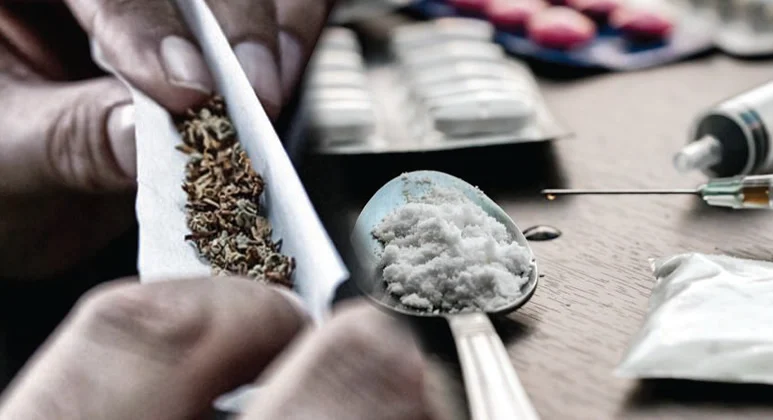
THIS week, we carried a story on the disturbing trends in drug abuse in Zimbabwe.
What is heart-breaking are the ages and types of drugs being abused.
An investigation we carried out in conjunction with Information for Development Trust — a non-profit organisation that promotes investigative reporting — established that children, as young as 11, are taking to drugs in Harare’s high density and affluent suburbs.
Cannabis is the most used substance in Zimbabwe and worldwide.
However, more Zimbabweans are turning to harder drugs such as cocaine, heroin, elphedrine and crystal methamphetamine or crystal meth, whose street name is mutoriro, to forget economic and social pressures, exacerbated by Covid-19.
Crystal meth is the most common used drug because it is cheap.
It is used as a remedy to ease stress from various socio-economic struggles.
Crystal meth needs to be added on the list of dangerous drugs.
- Chamisa under fire over US$120K donation
- Mavhunga puts DeMbare into Chibuku quarterfinals
- Pension funds bet on Cabora Bassa oilfields
- Councils defy govt fire tender directive
Keep Reading
Syringes and bottles of cough medicine and cheap liquor litter the townships and shopping centres in both high and low density suburbs, a sign of widespread abuse.
Mental institutions are recording a surge in the consumption of dangerous drugs, including opioids.
Opioids remain the most harmful, as the total number of deaths due to opioids use disorders went up 71% over the past decade.
They can be prescription medications often referred to as painkillers or they can be so-called street drugs, such as heroin.
The painkillers include morphine, oxycodone, hydrocodone and codeine.
Ingutsheni Central Hospital chief executive Nemache Mawere revealed that in 2021, the institution, which is the largest mental health referral institution in Zimbabwe, registered an increase in admissions of people who were suffering from mental health issues related to drug abuse.
The situation is now catastrophic. A tragedy is unfolding as the numbers of substance and abuse spike. We need serious conversations about drug and alcohol abuse. Many families have lost loved ones to alcohol poisoning and drug overdose.
Families across the social divide are battling the scourge. The emotional toll on family members is large. We all know how utterly devastating it is to see a loved one griped by drug addiction.
It is even more difficult in a country which lacks support systems such as affordable rehabilitation centres.
Lack of such systems makes recovery difficult for many abusers.
With a few government rehabilitation centres, many substance abusers have no way to turn for help.
Family members watch in despair as their loved ones self-destruct.
Failure to come up with robust strategies to reduce substance abuse will cost the country a whole generation.
We all need to take this matter seriously.
Drug and alcohol abuse is not only affecting the youths but also older people in their 40s and 50s.
People who abuse alcohol and drugs face an increased risk of death through suicide, homicide, accident and illness.
According to the United Nations Office on Drugs and Crime (UNODC) report titled World Drug Report 2020: Global drug use rising; while Covid-19 has far reaching impact on global drug, rising unemployment and reduced opportunities caused by Covid-19 make the poorest more vulnerable to drug abuse and drug trafficking and cultivation.
“Vulnerable and marginalised groups, youth, women and the poor pay the price for the world drug problem,” UNODC executive director Ghada Waly.
Lack of employment and the general economic hardships that have been exacerbated by the Covid-19 pandemic have pushed Zimbabweans, particularly the youth, into taking drugs.
Substance abusers say they take drugs and alcohol to numb stress.
While President Emmerson Mnangagwa declared in June last year a war against drug dealers and established an inter-ministerial taskforce to deal with the problem, it is not enough.
Drug kingpins are known but they are not being prosecuted.
Worse still, the Independent investigations also revealed that some police officers are involved, through kickbacks and participation in the drug trafficking and distribution syndicates.
The government needs to review laws, sentencing guidelines and practices for drug offences to make them more deterrent.
The drug and alcohol abuse is the new pandemic in Zimbabwe and more needs to be done to contain it.
farmers.











